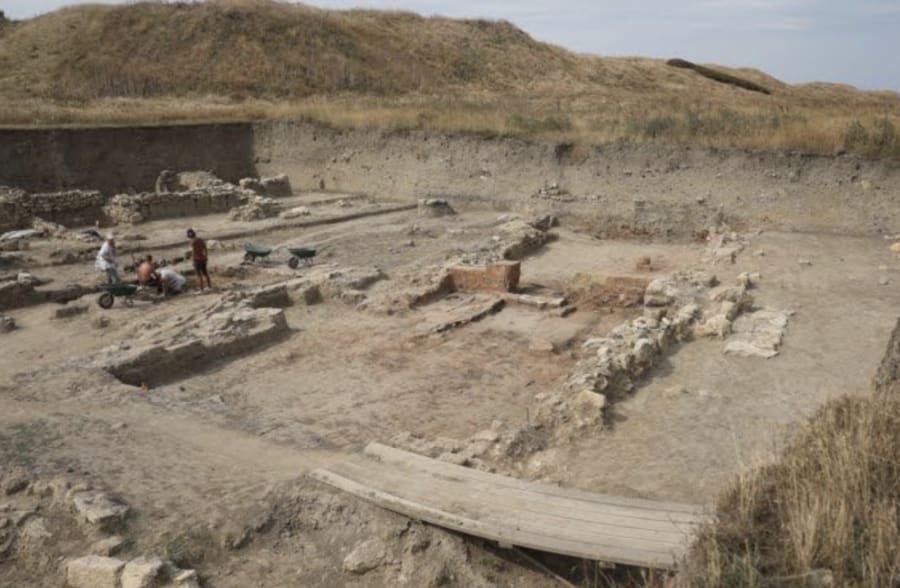Ancient 1st century synagogue discovered in southwestern Russia

The ruins of a synagogue from the Second Temple era have been discovered in what was once the ancient city of Phanagoria, located between the Sea of Azov and the Black Sea in today’s southwestern Russia.
It is estimated that the synagogue, built roughly at the beginning of the 1st century B.C.E., may have been destroyed by barbarian tribes that raided Phanagoria in the 6th century after standing for more than 500 years.
According to archaeologists, many of the oldest synagogues discovered to date go back only to the 3rd century, making the Phanagoria synagogue one of the oldest synagogues archaeologists have uncovered. In addition, researchers claim that few synagogues existed at the time the Phanagoria synagogue was built.
Constructed in a rectangular shape, the synagogue, was about 70 feet long and 20 feet wide and had two rooms with painted walls, as well as a tiled roof and other various decorations.
Excavators also found several menorahs, altars and fragments of marble steel at the site, in addition to a pair of tablets later dated to the 1st century.

News of the synagogue discovery in Russia brought joy to the Jewish community in nearby Krasnodar, with local Rabbi Menachem Mendel Lazar making plans to visit the site with a delegation.
The archaeological project was partially funded by the Volnoe Delo Foundation, established by Russian billionaire Oleg Deripaska.

The All Israel News Staff is a team of journalists in Israel.













